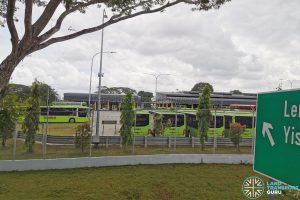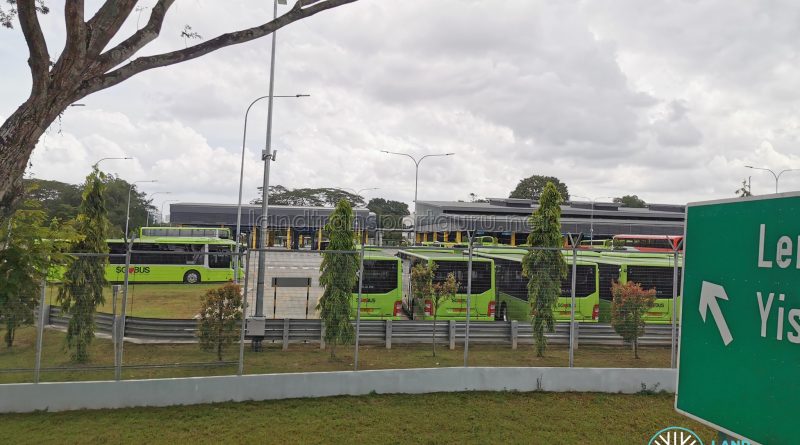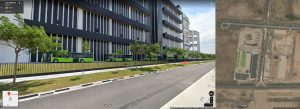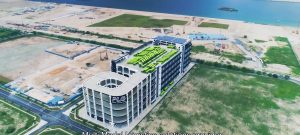Under the Bus Contracting Model (BCM) for Singapore’s public bus industry, the Land Transport Authority (LTA) owns all bus assets (such as buses, bus depots, bus interchanges/terminals, and so forth). As for buses, the LTA is also responsible for the renewal and replacement of these assets, and currently maintains a pool of spare buses that can be readily leased to bus operators when needed.
However, in recent years, a steady increase in excess buses (that have not been leased to any operators) has been observed. These vehicles are registered, yet remain garaged in bus depots and not in revenue service. Furthermore, time spent while in storage still counts towards the 17-year statutory lifespan for public buses. Hence, this article aims to shed some light on current practices.
These developments come on top of an unprecedented bus industry spending, with LTA posting a $1.013 billion deficit for the 2018/19 financial year.
See also: Transitioning of Buses to BCM
Excess buses in depots
Under the BCM, bus operators pay LTA a fee to lease public buses. At the same time, operators have to meet service standards set out by the LTA, governing the frequency, operating hours and percentage of high capacity buses deployed on a route. These standards change over time as the LTA tweaks the level of service required.
As a result, bus operators have a financial incentive to optimize their operations and minimize the number of buses they lease from LTA. One way operators achieve this is through efficient scheduling of buses – for example, increased use of bus interlining (which schedules bus drivers on several different bus routes during a shift). This practice rose to notoriety when it was blamed for a spate of Bus Captain resignations in September 2016, but all bus operators engage in some form of this practice.
See also: Bus Interlining
Bus depots functioning as excess bus storage

Storage buses are typically parked at a corner of a bus depot (most prominently in Seletar Bus Depot). They are formally assigned to an operator (the lessee of the depot where the bus is parked) by means of vehicle registration, but the operator does not use these vehicles, nor does it pay LTA to lease these buses. It is understood that the upkeep of these storage buses is maintained by the said bus operator.
Some of these storage buses were registered and directly assigned to the storage fleet, without seeing a day of revenue service.
More recently, the LTA had laid-up buses in storage, likely to avoid having to pay road tax on these vehicles. It is unclear why this is practice is carried out, since all road tax revenue is returned to the Government. With or without the lay-up, buses in storage are still formally registered and thus count down towards their 17-year statutory lifespan even while sitting unused in storage. The current practice of mothballing registered buses is thus a wasteful use of a bus’ statutory lifespan.
Buses in storage:
| LTA Storage Buses (as of 18 Apr 2024) | |
| Bus Model | Quantity |
| MAN A22 (Euro V) | 36 |
| MAN A22 (Euro 6) | 23 |
| Mercedes-Benz Citaro | 10 |
Reference: SGWiki – LTA Storage Buses
Since 1 Feb 2020, several buses were taken out of storage for replacement of retiring Volvo B10TL buses as well as new bus services.
In late April 2020, several MAN A22 (Euro 6) buses were registered and were parked at Ulu Pandan Bus Depot under storage.
In March 2021, 29 storage MAN A22 (Euro 6) buses were transferred to Tower Transit in preparation for its awarded term of the Sembawang-Yishun Bus Package which will commence in September 2021.
In May 2021, 40 Mercedes-Benz Citaro buses under storage changed their storage location from Seletar Bus Depot to Loyang Bus Depot. 39 MAN A22 buses were transferred back to LTA Storage from Tower Transit upon the commencement of the second term of the Bulim Bus Package.
In August 2021, several MAN A95 (Euro 6) buses were registered and were parked at Ulu Pandan Bus Depot under storage.
Between October – December 2021, a large number of storage buses were taken out and leased to SBS Transit, which was for the early retirement of buses. Many of these buses are parked at Ulu Pandan Bus Depot. In addition, leftover buses from the Sembawang-Yishun Bus Package under SMRT Buses were also transferred to SBS Transit. These buses started revenue service with SBS Transit from Jan 2022.
Several storage buses were also used to replace the retiring Volvo B9TL (CDGE) buses in September 2023.
Excess buses incoming
Despite the many buses currently in storage, a large influx of new buses is expected in the near future. Unless there are plans for a drastic increase in bus service levels in the coming months or years, the glut of excess buses in storage (registered or otherwise) will continue to exist.
In February 2020, a total of 150 Euro 6 single-deck buses (MAN A22) and 250 Euro 6 double-deck buses (MAN A95) were in the midst of registration as part of a bus purchase in 2018. Registration of these new buses has been slow due to the introduction of 50 diesel hybrid buses (Volvo B5LH) and 60 electric buses (BYD K9 (Gemilang), Linkker LM312, Yutong E12, Yutong E12DD) which are bring prioritized for introduction to revenue service.
All 250 MAN A95 Euro 6 double-deck buses and 150 MAN A22 Euro 6 single deck buses were registered as of 28 Feb 2020 & 30 Apr 2020 respectively.
In addition, the LTA has awarded tenders for more buses, namely 111 Euro 6 double-deck buses (MAN A95) awarded later in 2018, followed by a further 100 Three-Door Euro 6 Double Decker Buses scheduled to enter service in 2020. The 111 MAN A95 Euro 6 Batch 2 buses commenced registration from 20 March 2020, while the 3 Door Euro 6 Double Decker buses commenced registration from 25 January 2021.
As of 21 Jan 2022:
| Euro 6 Single Deck – 1st Batch | Euro 6 Double Deck – 1st Batch | Euro 6 Diesel Hybrid Buses | Euro 6 Double Deck – 2nd Batch | Electric Buses | 3-Door Double Deck buses | |
| Quantity Registered | 150 / 150 | 250 / 250 | 50 / 50 | 111 / 111 | 60 / 60 | 100 / 100 |
| Registration date | May 2018 – Apr 2020 | May 2018 – Feb 2020 | Nov 2018 – Mar 2019 | Mar 2020 – Oct 2021 | Jan 2020 – Aug 2021 | Jan 2021 – Jan 2022 |
One possible reason for the accelerated bus orders and deliveries can be traced to 2018. At the Committee of Supply Debate 2018, Transport Minister Khaw Boon Wan promised a significant 450 new buses to increase capacity on existing or new routes that run parallel to MRT lines whilst renewal works were ongoing.
To accelerate the renewal of the ageing assets, we will reinforce our bus network to provide some back-up capacity. We will be deploying 450 buses to bolster capacity along existing bus routes which support critical stretches of the rail network undergoing renewal. These are new buses. They were ordered to meet growing ridership demand and to replace our ageing bus fleet. We are opportunistically bringing forward their purchase and deployment to strengthen the resilience of our public transport network in the interim.
Some progress has been made towards delivering this promise, with the introduction of several Short Trip Services (2A, 7A, 7B), additional trips on their parent services, and a slew of full-day express bus services (12e, 147e, 167e, 851e and 960e) introduced since 2018. However, the number of new buses allocated to these new services fall far short of 450 buses, and rationalization of nearly all these routes have been carried out, with shorter operating hours for 7A, 7B, 12e, 147e, 851e & 960e, and the withdrawal of 147e.
See also: Rationalisation of Bus Service Operations (2019/2020)
Moving forward
In addition to storage buses being parked at Seletar Bus Depot (removed and parked at other depots as of mid 2021), the remaining Euro 6 MAN buses that have yet to be registered (as part of the 2018 MAN Euro 6 bus order) are parked at PLG Logistics in Tuas South and ST Engineering Land Systems’ compound at Corporation Road, and it is not known how much costs are involved for the storage of these buses at private premises.
In late 2020, PLG Logistics leased another warehouse in Tuas South to house unregistered buses such as the Linkker LM312 and the retrofitted electric bus. These buses were transferred back to the PLG Logistics Tuas South facility in April 2021 and eventually were registered in July & August 2021.
Under contractual obligations, LTA will likely continue to receive these new buses at a time when there is an excess of unused buses in Singapore, unless it works out a revised timeline to defer the delivery of these new vehicles. With LTA rationalising bus routes recently and cutting excess in a time of unprofitability, it remains to be seen if the LTA will continue to be holding on to large numbers of unregistered buses.
Parliamentary Question
In July 2022, Mr Gerald Giam Yean Song (Member of the Singapore Parliament for Aljunied GRC) asked the Minister for Transport:
- whether the Ministry has data on the total number of buses operated or maintained by public transport operators
- of these, how many are currently stored at bus depots;
- what is the average age of these buses that are stored at bus depots; and
- why are these buses not being deployed for bus operations.
In response, Minister for Transport S Iswaran replied:
As of May 2022, we have around 5,800 public buses with an average fleet age of eight years. About 3% of them are kept at the depots to serve as an operational reserve.
See Also
- LTA Storage Buses – SGWiki
- Speech by Minister Khaw Boon Wan at the Ministry of Transport’s Committee of Supply Debate 2018 – MOT
- Written Reply to Parliamentary Question on Data on Total Number of Buses Operated or Maintained by Public Transport Operators and Stored at Bus Depots – MOT
Back to Bus Articles



Unless SMRT lose,If they win i think they won’t take more new buses already..They have excess Single decker also.
Or how about re-assigning these buses to Mandai package?
Think of it,LTA should award Seletar to SMRT thus saving the hassle of them to co-share parking with SBST.
I think it’s ST that lease those compound for the MAN buses..Unless they want to progressively dereg those Euro IV Scanias and replace with these buses.So the future is clear with SBST/SMRT will be the main players and two new operators every 5 years.The balance order can use different bodyworks too.
Got relationship meh? If it’s because of storage requirements, it is already clear that when the negotiated contracts are tendered out in the Bus Contracting Model, they will formally be operating only from a LTA bus depot. Furthermore, you already mentioned that it could be ST that leases the private premises to store the MAN buses. Likewise for the other buses, such as the Mercedes-Benz Citaro buses, which were also stored at private premises previously.
In terms of competition, obviously the more operators, the better. I honestly don’t believe SBS Transit or SMRT have the metal rice bowls in the public bus industry. There is no sure-win package. But of course, if an operator is good, obviously that operator earns the trustworthiness and the mandate to continue operating the package(s) that it is operating. Otherwise, the package(s) should be given to other operator(s) that is/are more capable of operating the package(s). The recent Presidents in US, Indonesia and Taiwan have been elected for 2 terms. I hope all the operators in the public bus industry are capable of operating the package(s) for at least 2 terms. Otherwise, if they can only operate a package for 1 term, it really casts doubts on their capability to operate the public bus services, and they should exit the Singapore market.
Anyway, competition should be 100% meritocratic. Not saying that every operator must operate a package for 2 consecutive terms. If any operator is lousy, obviously after 1 term it should be replaced. And it all depends on the operators’ own track record /past experiences.
Anyway, the storage places of buses should not influence the tendering process of the packages, because anyway the packages are operating from a LTA depot when it is contracted out in the Bus Contracting Model. There is no question about whether a package has a bus depot to operate or not.
As for the possibility of metal rice bowls in the Bus Contracting Model, as I have mentioned, the process should be 100% meritocratic. If an operator can consistently operate a package for 2 terms, 3 terms, 4 terms, 5 terms, etcetera, then obviously the package to the operator would seem like a metal rice bowl, but actually it’s not because the package is a metal rice bowl, but rather it’s because the operator has the consistent track record that it can operate the package really well.
Too bad in Asia or some parts of the globe,”Brothers” term is still in practice.
To he fair,LTA should also tender out rail contracts.Presidency is way different from BCM don’t mix it..Politics will never come clean…
Why not select only multi-modal operators instead on award Tower Transit which only can operate buses?Go-Ahead can operate rail,RATP and BVB also.
They should adopt the Transperth rule that nobody should operate more than 50% of the total service mileage or maximum of 6/14 packages per operator to avoid monopoly scenario.
Actually, there is a possibility that now that PRC is no longer working, because the entire country is suffering because of the coronovirus, LTA actually can take the opportunity to cancel order to reduce wastage, or cut down the spending, to rescue itself from the mess that it has made.